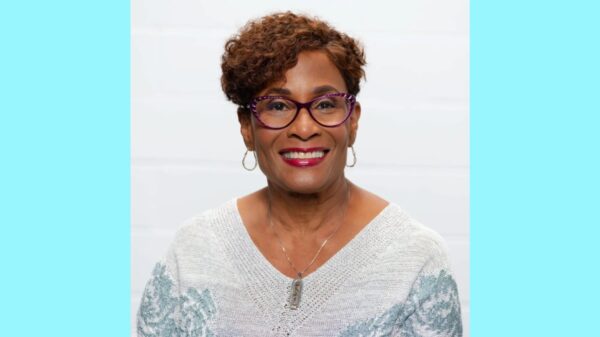By New York Amsterdam News

The holiday season is here.
It’s time for gifts, holiday meals and celebrations, parties, and community. The holidays are a great time to celebrate and give thanks for all we have. In this fun and joyous time of the year we want to look at a part of the economy that affects us all: Black consumer spending during the holidays.
Black people in the U.S. are richer and have more spending power than ever before. With this spending comes power—real economic power. We have a responsibility to use it wisely.
Black businesses are growing in every sector. If you cannot find a Black business that sells what you want, you are not looking hard enough.
Blacks have enormous spending power. In 2019, the University of Georgia’s Selig Center for Economic Growth estimated total Black buying power in 2024 at $1.8 trillion or about 9 percent of all buying power in the United States ($20 trillion). Recent surveys, such as the Survey of Consumer Finances, found that African American wealth has jumped 60 percent to $45,000 in 2022, thanks to real estate ownership and business ownership.
Black businesses are growing in every sector. If you cannot find a Black business that sells what you want, you are not looking hard enough. In 2021, there were 161,000 Black businesses with sales revenue of $183 billion. Black businesses employed 161,000 people and paid $53 billion in payroll wages.

Where Do Black People Spend Their Money?
Blacks spend less than Whites, overall, because Black income and wealth are lower. But there are other factors as well. Blacks have less access to credit. A second problem is desertification or lack of retail shopping opportunities. Finally, consumer discrimination is still real.
About 80 percent of Black spending is survival (economists call it “non-discretionary”) spending, including rent, food, transportation to and from work, and healthcare expenses. If you don’t pay these bills, something bad is going to happen. The other 20 percent is discretionary. And the competition for that last 20 percent is fierce. Apple spends an estimated $3 billion on marketing and advertising.
The top Black spending categories are electronics, haircare, skincare, clothing and apparel, beauty and makeup, and fragrance and candles. If you are thinking of buying a gift in one of these categories, then consider a Black business.
There is relentless advertising for Black consumer dollars. Note No. 1: The focus on Black consumption of luxury goods is racist jealousy. People have no idea how hard someone worked or what they went through to buy that pocketbook. Black people buy far less luxury goods than whites, so the real message is “you don’t deserve it.” Note No. 2: We don’t feel powerful. There has been a huge discussion for many years among veterans of the Civil Rights Movement and Black politicians about Black spending power. Why doesn’t all this money translate into economic and political power? Why hasn’t Black wealth and income translated into more stability, better living conditions, and greater happiness for Black Americans?
It’s true that buying stuff can bring status, and it can also make you feel good. Thanks to endorphins in the human brain, if someone says, “I love your bag, where did you get it?” you are on cloud nine for days. The bad news is that the status effects of purchases last only three to six months. And it wears off. Your friends get used to the bag, jersey, or the new car. The status “feeling” is addictive. You want that feeling again, so you run to the store. Humans are both cooperative and competitive, but companies advertise to our competitive, selfish nature because it generates higher profits.
Holiday spending is big. Nearly 30 percent of all spending occurs during the holiday period. Some 130 million people were expected to shop on Black Friday. 80 percent of consumers will spend the same amount of money or more this season. The National Retail Federation (NRF) estimates total holiday spending at $960 billion, up 3 percent from last year. NRF also estimates consumers will spend about $875 on core holiday items. The international accounting firm PricewaterhouseCoopers (PwC) estimates consumers will spend an average of $1,530 over the holidays including about $786 for gifts, $510 for travel, and $234 for entertainment.
According to PwC, female shoppers are more price-conscious than male consumers. After price, they prioritize free returns, convenience, and speed. Forbes reports the top spending categories are food and festive meals (51 percent), gifts (47 percent), alcohol and beverages (41 percent), travel (29 percent), and Entertainment (17 percent).
85 percent of Americans buy gifts for their friends and families. Gift cards are the most popular present to receive. 65 percent of Americans shop online for holiday purchases. Online shopping increased about 8 percent this year. 20 percent of consumers are expected to use “Buy-Now Pay-Later” services to pay for holiday spending.
Commonsense Rules for Black Holiday Spending
Rule No. 1: Plan ahead, budget ahead. Use cash or a debit card rather than a credit card. Avoid gift cards with fees. Spending less money on gifts does not make them less meaningful. Take advantage of computer-assisted shopping technology. Search for a product before buying. Compare prices and features side by side, ask AI for gift recommendations
Rule No. 2: Try Black businesses first. We are asking everyone to spend $25 this holiday season with a Black business. Use an online Black business directory. The amount you spend is not as important as the actual process of finding a Black business and a Black retail product. Consider Black business gift certificates.
Rule No. 3: Don’t shop where you can’t work. Avoid businesses that do not employ Black people like retail establishments, convenience stores, restaurants and franchises. If no one Black works there then you probably should not be shopping there. And don’t fall for condescending and demeaning sales tactics like,” If you have to ask the price, you can’t afford it.” Answer: “Look <insert put down here>, I work hard for my money, but clearly you don’t.”
Rule No. 4: Order online. You know someone Black is working in the warehouse and delivering the product. Make use of free returns. Most of us like the in-person shopping experience: the crowds, the “buzz,” and the surprise of finding something new. But that does not mean, you actually have to buy it in the store.
Rule No. 5: Avoid anti-Black businesses. Chick-fil-A has few Black managers and even fewer Black franchise owners. Tesla has multiple discrimination and anti-labor lawsuits. Many tech companies like Apple, Google, and Microsoft have few Black employees (less than 3 percent) in jobs that are outside of retail. Wells Fargo “steered” qualified Black applicants to sub-prime mortgages. The list of consumer discrimination is long. Meanwhile, some brands like Proctor and Gamble are known for diverse workforces. So are UPS and the postal service.
We are not asking you to change your spending, just consider a Black business. There are hundreds of Black business directories at your fingertips, so you can no longer claim you cannot find a Black business.
Rule No. 6: Consider experiences rather than things. Concerts, events, dinners, boat cruises, hikes, ice skating, quilting, music lessons, sports, dance lessons, and hobby kits are all great gifts. Many community colleges and vocational schools offer classes in carpentry, electrical wiring, and home repair.
Rule No. 7: Look for quality products. Quality products are cheaper in the long run. We just bought our fourth coffee maker in ten years. I drove over to Walmart and spent another $40. Four times $40 is 160 bucks. If I had just bought the more expensive model, I might have saved money. Same for shoes and coats.
Our Gift Ideas
Black business gift certificates, one hour of cell phone support (great for older people), cookbooks, 5 lb hand weights, an old school hip hop logo t-shirt or hoodie, a sports jersey, a free credit report (Credit Karma and others). Other ideas: games, “a hobby” (google “find a hobby”), a scrapbook with old photos, family history research, and the old standby—a plant. Also, a corkscrew, a visit with relatives, and a meal are good too.
The best gifts for someone interested in personal finance? Their own credit report, an application for a low fee, low-interest credit card, or a personal finance course. There are also online personal finance courses (for example “Earn You Leisure” and “The Broke Black Girl” offer courses).
We are not asking you to change your spending, just consider a Black business. There are hundreds of Black business directories at your fingertips, so you can no longer claim you cannot find a Black business. There is no longer any excuse not to spend money with a Black business in 2023. Black people in the U.S. are doing well, not great, financially. We are asking Black consumers to use some of that spending power wisely and support Black businesses. Happy Holidays.
(Chris Lee writes at BlackEconBiz.com, a website about Black Economics and Black Economic success and happiness.)
(This post was originally published on New York Amsterdam News)









You must be logged in to post a comment Login